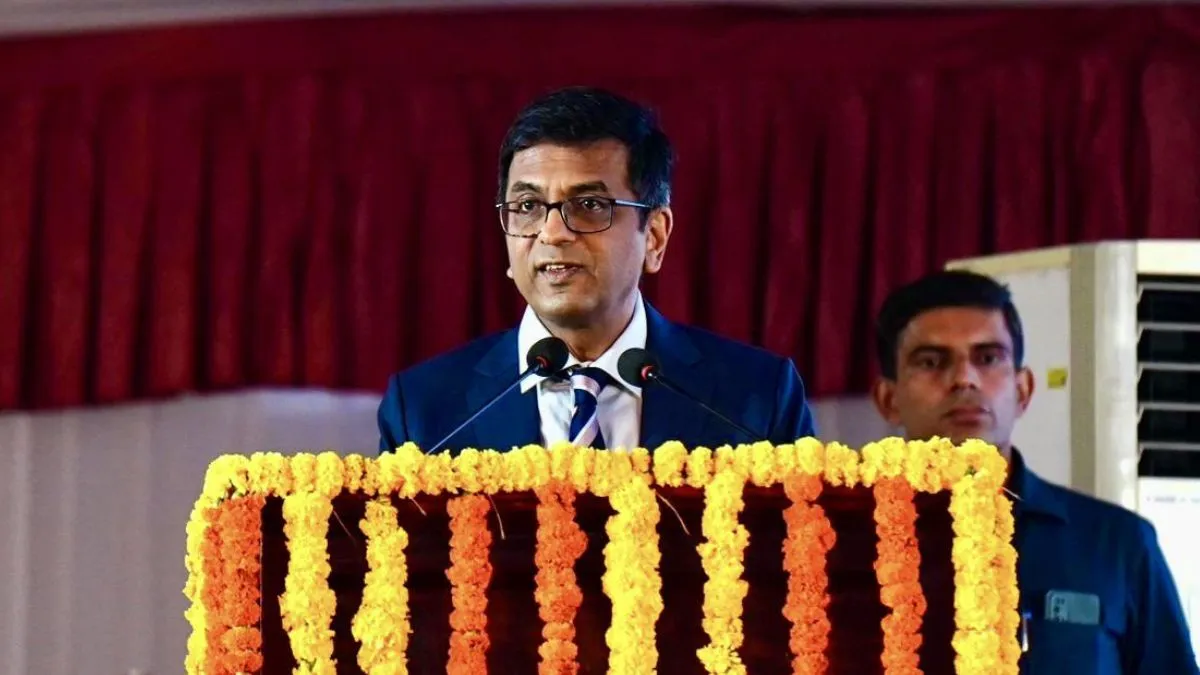- By Imran Zafar
- Tue, 02 Jul 2024 05:09 PM (IST)
- Source:JND
Chief Justice of India DY Chandrachud laid the foundation stone of new court buildings at Karkardooma, Shastri Park and Rohini (Sector 26). During the foundation laying ceremony, CJI DY Chandrachud stated that court buildings are not merely physical structures but symbols of hope and justice for the people, highlighting the importance of creating a just and inclusive system by ensuring the safety, accessibility and comfort of judges, lawyers and litigants.
"Court reminds us like all buildings are not just made of bricks and concrete. They are made of hope. Every case that is being filed before us is with that hope for justice. When we invest in the safety, accessibility and comfort of our judges, lawyers and litigants. We build more than just an efficient system. We make for a just and inclusive system," ," CJI Chandrachud said.
The Chief Justice pointed out that the new court facilities would expand the court's capacity to handle cases in one of Delhi's most populous jurisdictions, helping to alleviate case backlogs and providing a dignified environment for all stakeholders.
The new court complexes are expected to enhance the efficiency of the judiciary by reducing dependency and facilitating rigorous discussions and deliberations on legal principles.
CJI Chandrachud likened the cornerstone of buildings to the cornerstone of justice and equality, stating that the court's approach to cases should be shaped by these virtues. He reiterated that the legal and constitutional system is fundamentally based on justice, liberty, equality and fraternity.
Supreme Court judge Seema Kohli, Delhi Lieutenant Governor VK Saxena, Delhi Minister Atishi, Justices Rajiv Shakdher, Suresh Kumar Kait, Manoj Kumar Ohri, Manoj Jain and Dharmesh Sharma among others were present on the occasion.
Delhi Minister Atishi also spoke at the ceremony, underscoring the role of the Constitution as the last resort in addressing India's deep-seated inequalities, despite 75 years of independence. She highlighted the government's responsibilities in fulfilling the vision of the Indian Constitution by providing world-class education, healthcare, economic opportunities and basic infrastructure to the poorest sections of society.
Atishi stressed that, while significant inequalities persist, the Constitution ensures that every citizen is equal before the law. She acknowledged the long journey ahead in reducing disparities of caste, gender, wealth, education and power but maintained that the Constitution remains the ultimate equalizer.
ALSO READ: Gujarat Rains: 30 Villages In Junagadh Cut Off As Roads Inundated Amid Statewide Downpours; VIDEOS
Delhi Lieutenant Governor VK Saxena emphasised the necessity of strengthening the judicial system to bridge societal disparities and secure the rights of the most marginalised individuals. He highlighted the importance of the rule of law and justice in reducing inequality in a rapidly changing society.
(With Agency Inputs)


